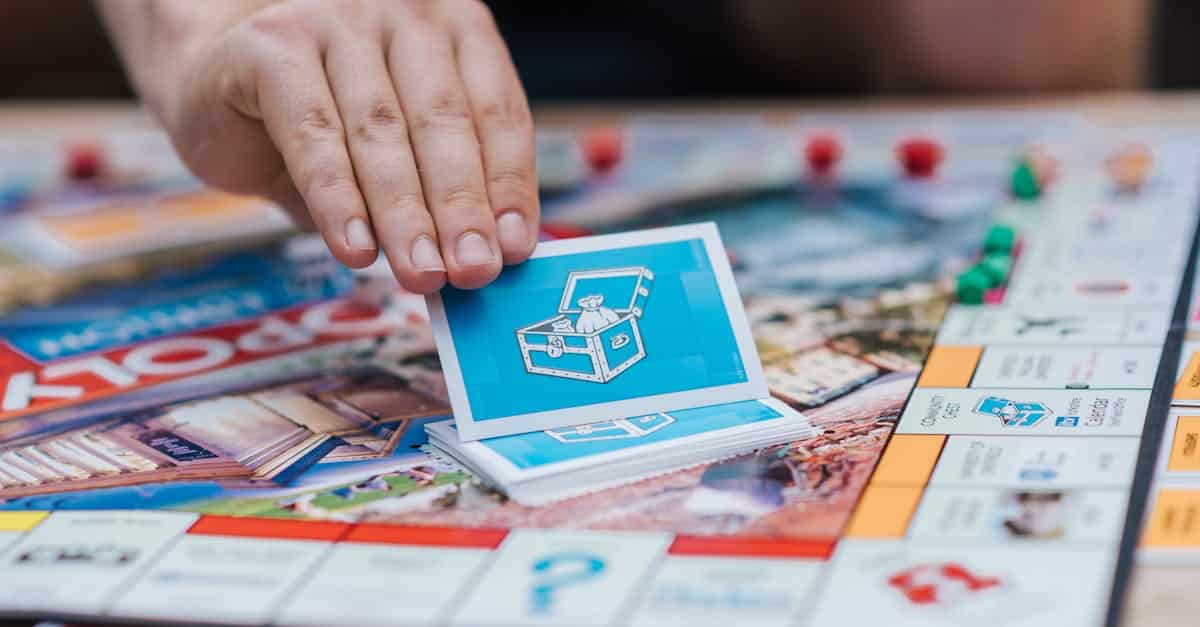“`html
Making informed decisions is an essential art in the professional world. Every choice we make can influence our personal trajectory and that of our teams. Knowing how to navigate complex options requires not only reflection but also appropriate tools.
From this perspective, training and drawing inspiration from the best books on decision making is essential. Whether you are a leader or a collaborator, these books offer enriching perspectives to enhance your skills in leadership and management. Together, let’s explore a selection of the best titles that will accompany you in your daily decision-making. Get ready to discover effective strategies and concrete cases that will transform your approach.

Making informed decisions is essential both in personal and professional life. Whether you are a leader looking to enhance your decision making skills or an individual wanting to better manage everyday choices, reading specialized books can greatly assist you. Here is a selection of essential titles to refine your ability to decide and understand the consequences of your choices.
What are the best books to understand the basics of decision making?
To grasp the fundamentals of decision making, certain books stand out for their clear approach and in-depth analyses. Among them, Decision Making in Complex Situations by Jean-Pierre Obin offers a detailed exploration of 24 real cases, illustrating how to navigate difficult contexts. This book, published by Hachette Éducation, is ideal for those wishing to understand the complex dynamics behind each decision.
Another key work is Reasoning, Problem Solving and Decision Making by Jean-Marc Meunier, published by Dunod. With its 200 pages, this book presents a structured methodology to address decision-making challenges, combining theory and practice for immediate application.
How can philosophy enrich your decision making?
Philosophy offers unique perspectives on how to think and decide. Decision Making: A Bit of Philosophy for Professionals Who Want to Think Differently by Flora Bernard, published by Dunod, is an excellent example of this approach. This book encourages professionals to adopt deeper and more critical thinking by integrating philosophical concepts into their decision-making processes.
The author explores how philosophical principles can help structure thoughts and evaluate decisions from a different angle, thereby promoting a more thoughtful and less impulsive decision making.
What tools can you use to improve your decision making?
Using appropriate tools can greatly enhance your decision-making efficiency. SWOT Analysis: Your Tool for Informed Decision Making is one of the recommended works that details this essential method. The SWOT analysis, which evaluates strengths, weaknesses, opportunities, and threats, helps structure your decisions strategically.
Jean-François Rieu, in Dashboards – Manage Your Information to Optimize Decision Making with Excel, published by Éditions ENI, shows how to use Excel to create effective dashboards. These tools allow for clear visualization of data, thus facilitating informed decisions based on concrete facts.
How to manage decisions in uncertain situations?
Making decisions in times of uncertainty is a major challenge. The book Decision Making under Uncertainty offers strategies for navigating changing and unpredictable environments. It provides techniques for assessing risks, anticipating possible consequences, and adapting your decisions based on new information available.
Integrating these skills into your routine can help you remain agile and responsive, even when faced with situations where data is limited or fluctuating.
What role does emotional intelligence play in decision making?
Emotional intelligence is a key factor in effective decision making. Understanding and managing your own emotions, as well as those of others, can positively influence your choices. The article Can Emotional Intelligence Influence a Major Life Decision? Experts Share Their Opinions explores this subject in depth, offering valuable insights into the interaction between emotions and decisions.
Developing your emotional intelligence can not only improve your personal decisions but also strengthen your leadership and team management skills.
How can financial modeling assist in decision making?
Financial modeling is a powerful tool for assessing the financial impacts of your decisions. Financial Modeling with Excel (2nd Edition) – From Analysis to Decision Making by Boris Noro, published by Éditions ENI, is an essential resource for learning to use Excel in an advanced way. This book guides you in creating robust financial models that can simulate various scenarios and help you make decisions based on precise quantitative analyses.
Mastering these skills allows for forecasting the financial consequences of your choices, thereby reducing risks and optimizing opportunities.
What are the common pitfalls in decision making and how to avoid them?
Decisions can often be influenced by cognitive and emotional biases. Brain Liar! – Outsmarting Decision Making Traps by Alex Si, published by Diateino, addresses how our brain can bias our choices and proposes strategies to circumvent these traps. By recognizing these biases, you can improve the quality of your decisions by making them more objective and rational.
This book offers practical advice and concrete examples to identify and avoid common mistakes, thus strengthening your ability to make fairer and more effective decisions.
How to assess and improve your decision-making skills?
To assess and develop your decision-making skills, it is important to focus on works that offer proven techniques and practical tools. The Art of Decision Making: Developing Skills for Informed Choices by Isadora Ivy, published by Independently published, is a valuable resource that provides concrete methods to improve your ability to make informed decisions.
By practicing the exercises and applying the techniques presented, you can strengthen your confidence and effectiveness in decision making, whether in your professional or personal life.
How does governance influence decision-making processes?
Governance plays a crucial role in the structure and quality of decisions within organizations. Governance and Decision Making: The Questions That Disturb by Eric Lamarque, published by ORGANISATION, explores how governance structures impact strategic decisions. This book highlights power dynamics, collective decision-making processes, and best practices for effective governance.
Understanding these aspects can help you navigate complex organizational environments and contribute positively to your company’s decision-making processes.
How to apply SWOT models in your decisions?
The SWOT analysis is a widely used strategic tool to evaluate the internal and external factors influencing a decision. Detailed in The Decision Book: From Bourdieu to SWOT, 50 Models to Apply for Better Thinking by Mikael Krogerus, published by ALISIO, this work presents 50 different models to structure your thinking and improve your choices.
By using these models, you can systematically analyze the positive and negative aspects of each option, thus facilitating a more balanced and informed decision making.
What recommended books are there for chess enthusiasts and decision making?
Strategy games, such as chess, offer valuable lessons on decision making and foresight. Decision Making in Chess: Positional Play by Boris Gelfand, published by Le pion passé éditions, explores the parallels between chess strategies and real-life decisions. This book shows how the skills developed in chess can be transferred to improve your ability to anticipate consequences and plan for the long term.
For strategy game enthusiasts, this work offers interesting insights into how to apply chess principles to complex decision-making situations.
Integrating rapid decision-making techniques
In a world where decisions sometimes need to be made quickly, mastering effective techniques is crucial. The article The 5 Foolproof Techniques for Rapid Decision Making offers proven methods to speed up your decision-making process without compromising quality. These techniques include prioritization, the use of heuristics, and the application of clear criteria to evaluate available options.
By integrating these techniques into your daily life, you can improve your responsiveness and effectiveness in situations requiring quick decision making.
What influence does the MBTI have on life decisions in a couple?
The Myers-Briggs Type Indicator (MBTI) is a psychological tool that can influence how partners make decisions together. The article The Influence of the MBTI on Life Decisions in a Couple explores how personality types can affect choices and compromises in a relationship. Understanding these differences can enhance communication and collaboration between partners, leading to more harmonious and balanced decisions.
By considering the personality traits defined by the MBTI, couples can better anticipate each other’s reactions and preferences, thus facilitating a smoother joint decision-making process.
Frequently Asked Questions about decision making
How to make an effective decision when faced with a difficult choice?
To make an effective decision when faced with a difficult choice, it is important to analyze all available options, weigh the pros and cons of each option, consult reliable sources, and consider your own values and goals. Seeking the advice of friends or professionals can also provide different and enriching perspectives.
How to avoid procrastinating when it comes to making an important decision?
To avoid procrastinating when making an important decision, set a deadline, break the decision into smaller steps, remind yourself of the consequences of not acting, and focus on the benefits of making a swift decision. Setting clear goals and remembering that sometimes an imperfect decision is better than no decision can also help greatly.
Which book analyzes real cases of decision making in complex situations?
It is highly recommended to discover Decision Making in Complex Situations: 24 Real Cases Analyzed and Commented by Jean-Pierre Obin. This book provides a detailed analysis of real cases, allowing for a better understanding of the dynamics and challenges encountered in decision making within complex contexts.
Best publishing houses for books on decision making
Several publishing houses specialize in works on decision making, each bringing expertise and a diversity of perspectives. Among them, Hachette Éducation and Dunod stand out for their varied and high-quality selection. Éditions ENI and ALISIO also offer valuable titles that cover both the theoretical and practical aspects of decision making.
Regardless of the publisher, these houses ensure rigorous publication and relevant content, tailored to the needs of professionals and personal development enthusiasts.
Complementary resources to deepen decision making
In addition to books, there are many online resources to improve your decision making. Visit SWOT Analysis: Your Tool for Informed Decision Making to learn more about this strategic tool. Also discover quick decision-making techniques at The 5 Foolproof Techniques for Rapid Decision Making and explore the influences of emotional intelligence on your life decisions at Can Emotional Intelligence Influence a Major Life Decision? Experts Share Their Opinions.
These complementary resources offer varied perspectives and practical tools to continue developing and refining your decision-making skills.

“`html
Frequently Asked Questions
Q: How to make an effective decision when faced with a difficult choice?
A: To make an effective decision in a delicate situation, it is essential to analyze all available options, weigh the pros and cons of each alternative, consult reliable sources, and consider your own values and goals. Seeking the opinion of friends or professionals can also offer different and enriching perspectives.
Q: How to avoid procrastinating when it comes to making an important decision?
A: To avoid procrastination when making an important decision, it is recommended to set a deadline, break the decision process into smaller and manageable steps, remember the consequences of not deciding, and focus on the benefits of making a quick decision. Setting clear objectives and recognizing that even an imperfect decision is often preferable to inaction can also be very beneficial.
Q: Which book analyzes real cases of decision making in complex situations?
A: It is highly recommended to discover Decision Making in Complex Situations: 24 Real Cases Analyzed and Commented by Jean-Pierre Obin. This book offers a detailed analysis of real cases, providing valuable tools to improve your ability to make effective decisions in complex contexts.











